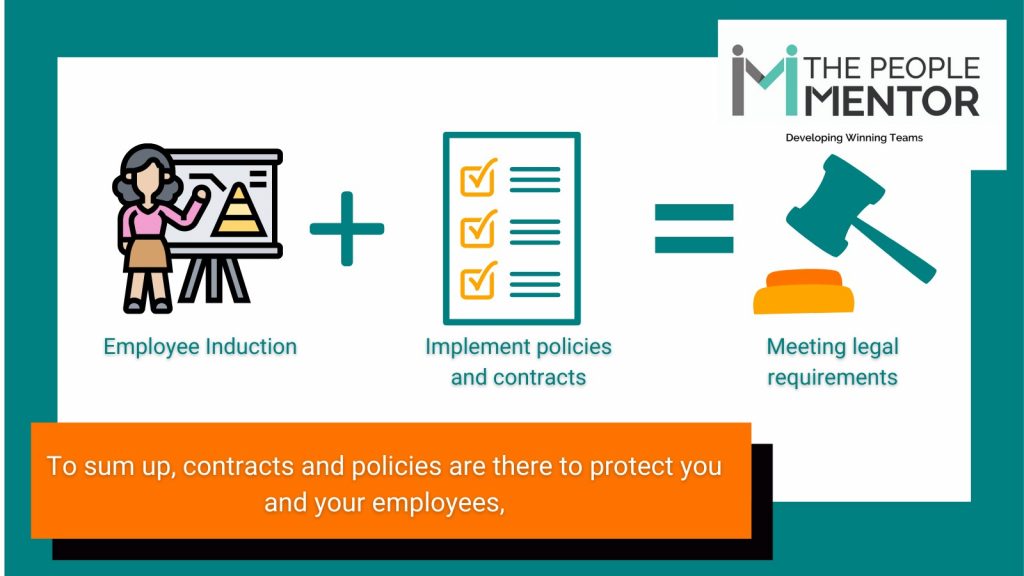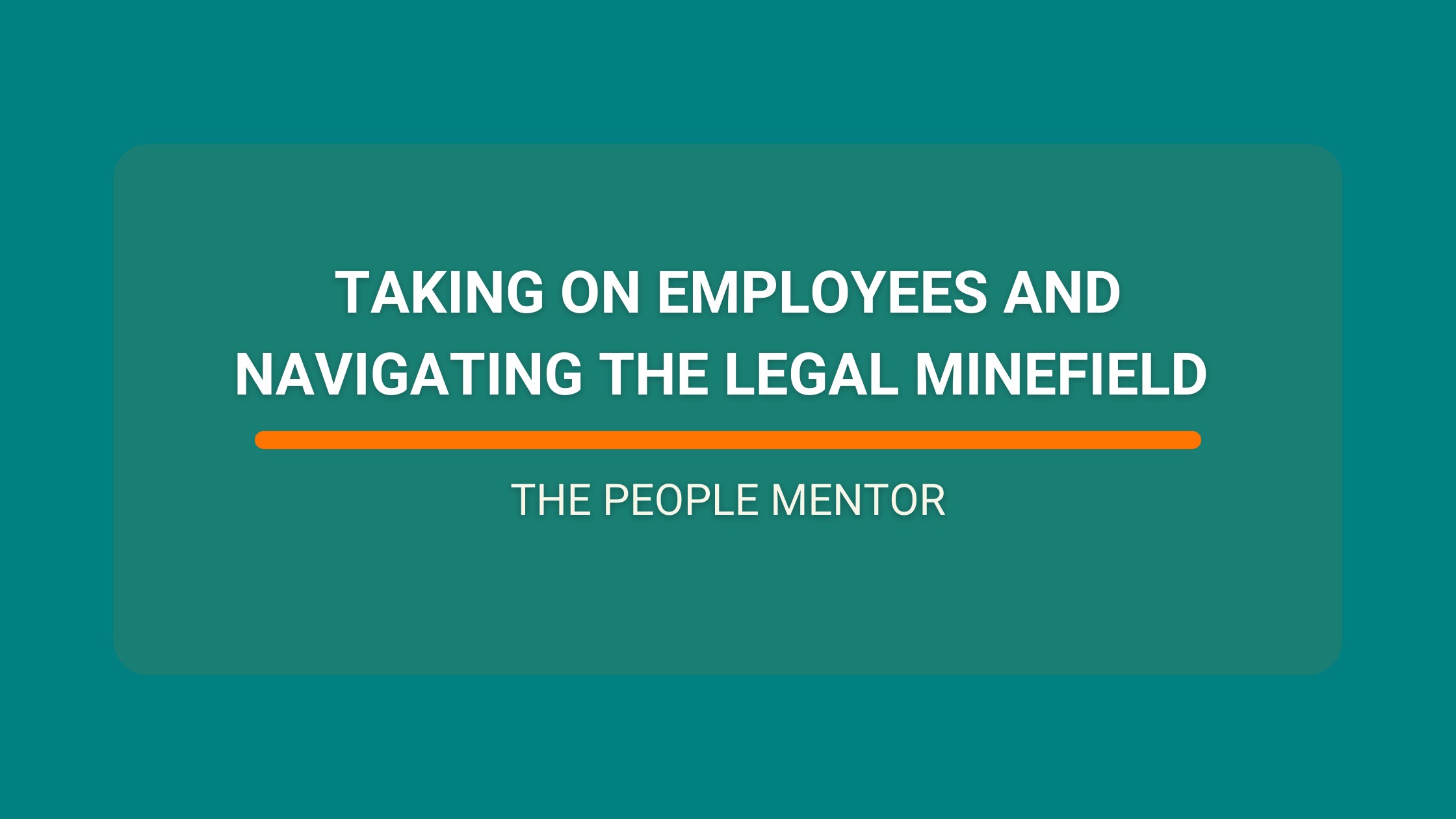So you started your business and spent the first few years wearing all the hats, working hard, and enjoying the feeling of being in charge of your own ship. But if like many small business owners, you want to be able to retire or sell eventually with a tidy nest egg, you have to grow. This means taking on employees.
You’re probably used to having a never-ending to-do list, and having to spend your time doing onerous things that you’d rather not do, but if you’re finding that you’re turning down work because you don’t have the capacity to do it, you want to offer customers something new but you don’t quite have the skills yourself, or you’re getting complaints about the quality of your work because you’re spreading yourself too thin, it’s probably time to grow your team.
Hiring the right employees can give you your time back so you get to spend more time on the things that are going to help grow your business and help you have a better work-life balance.
That is the dream, and I’m not here to dash it. But the reality is that being an employer brings with it legal responsibilities. The right contracts and policies need to be put in place to protect you, your employees, and your business.

In this podcast, I want to give you a short guide to your legal obligations as an employer. These are the basics of what you should have in place.
Firstly, as soon as you take on an employee;
They have certain statutory rights related to health and safety, terms and conditions of employment, pay, leave arrangements, and fair treatment.
But before you even get to that, you should make sure you have an adequate induction process for new employees. You want new employees to fit in right away and hit the ground running, but if they come in on their first day and they don’t know where to go or what they should be doing, that’s not going to happen. Use the induction process to identify any training needs they have too.
A contract of employment should be provided to every new starter, which details their terms and conditions of employment, including salary, annual leave, responsibilities, and any other relevant terms to be agreed upon.
Employers must pay employees at least the national minimum wage, and provide them with a payslip detailing gross and net pay, plus any deductions that have been made. Remember too that since last year, any employees aged 22 and over who are earning more than £10,000 per year should be automatically enrolled in a workplace pension scheme.
As soon as you take on an employee, remember to inform HMRC. You’ll need to deduct the correct rate of income tax and national insurance from their pay, as well as complete a separate tax return.
When it comes to health and safety, you have a duty of care to look after your employees’ well-being. This means having a comprehensive health and safety policy in place, completing risk assessments for the workplace and for work activities, and having an adequate accident reporting procedure.

Put Policies in place
Earlier we mentioned the rights of every employee to be treated fairly at work and this is where having policies in place, such as a disciplinary and grievance policy, bullying, harassment and discrimination policy, and an attendance management policy comes in. These policies protect you from legal issues and employment tribunals, and they protect employees because they ensure that they will be treated fairly at work.
Your disciplinary and grievance policy allows you to be clear on how you expect employees to conduct themselves while stating what will happen when their conduct falls short of what is expected. It will also give employees the peace of mind that their complaints and concerns will be taken seriously.
A bullying, harassment and discrimination policy again protects you and your employees. Did you know that you could be liable if an employee suffers bullying, harassment, or discrimination at work because of their gender, sexual orientation, marital status, age, race, colour, ethnic origin, nationality, or beliefs or because of a disability, pregnancy or trade union membership?
A comprehensive policy allows you to state that this behaviour will not be tolerated in the workplace and the procedure you will follow in the event of any incidents.
Finally, an attendance management policy is a must for any employer. It should cover sick leave, annual leave, maternity leave, paternity leave, and emergency leave. Flexible working requests may also be covered by this policy. Employees have the right to ask you for flexible working, though agreeing to it is at your discretion.
This policy should also outline the procedures for sickness reporting and how frequent short-term absences are dealt with.
To sum up, contracts and policies are there to protect you and your employees, and having them in place ensures that not only do you comply with all of your legal obligations as an employer, but you also have your processes and procedures there in black and white to refer to when you have to have difficult conversations with any member of your team.
Understanding your legal obligations
Do you understand your basic legal obligations as a small business employer?
Have you been slowly growing your team and just want new employees to hit the ground running?
Do you know which basic contracts and policies you need in place to protect yourself, your staff and your business?
Are you overwhelmed just at the thought of trying to sort them out yourself?
I can help.
They’re easy to implement when you know-how, and I can help you put them in place, quickly and simply.
From employment contracts and policies to basic Health and Safety checks, I’ll help you meet the necessary legal and compliance obligations to protect your business.
Here’s what I do:
I work with you as a business owner to understand the values and overall vision of the business which I’ll then share with your employees in a workshop.
I work with employees to establish roles and responsibilities and the behaviours expected of them. I then share bitesize training to talk managers and employees through what is required for Health and Safety, teach them how to carry out a risk assessment, and what they need to do going forward.
Here are the results you can expect:
The policies and contracts I put in place will put your business on a secure footing going forward, and you can rest assured in the knowledge that legal compliance and protection is in place for both your business and your employees.
Your employees will be clearer on the values of your business, and they’ll better understand their responsibilities and what’s expected of them.
I’ll help you create a working environment based on trust and openness, and I’ll support you through visits to your premises and phone calls in between.
Why should you choose me?
I have over 30 years of experience in building teams, managing projects, and implementing contracts and policies.
I also understand exactly what it’s like to feel overwhelmed and not know where to begin, and the conflict between desperately wanting to grow your business and the need for a work-life balance.
Let me take away the stress and help you get your legal basics right.
Give me a call today to find out more!
Want to read more on this subject






